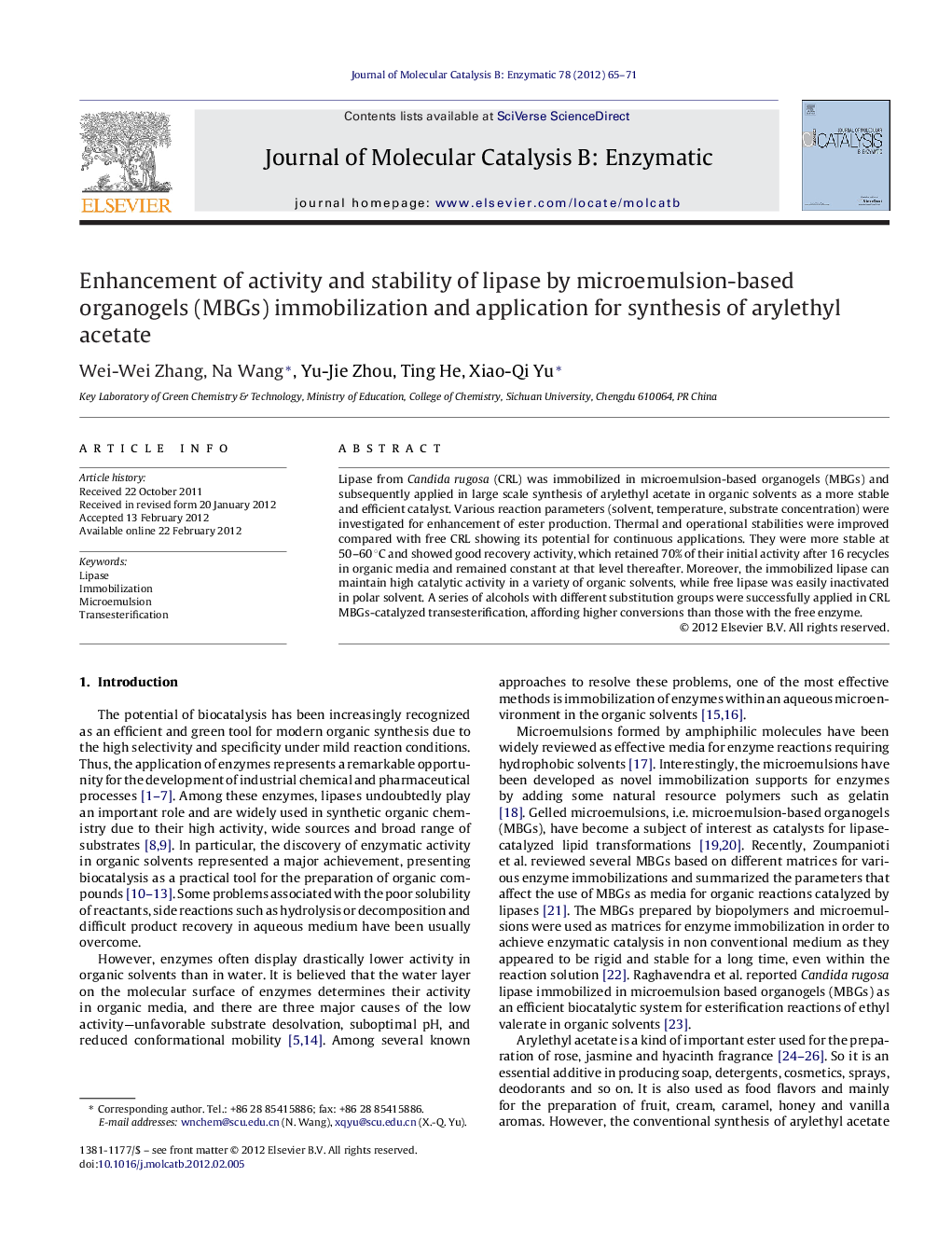| Article ID | Journal | Published Year | Pages | File Type |
|---|---|---|---|---|
| 70063 | Journal of Molecular Catalysis B: Enzymatic | 2012 | 7 Pages |
Lipase from Candida rugosa (CRL) was immobilized in microemulsion-based organogels (MBGs) and subsequently applied in large scale synthesis of arylethyl acetate in organic solvents as a more stable and efficient catalyst. Various reaction parameters (solvent, temperature, substrate concentration) were investigated for enhancement of ester production. Thermal and operational stabilities were improved compared with free CRL showing its potential for continuous applications. They were more stable at 50–60 °C and showed good recovery activity, which retained 70% of their initial activity after 16 recycles in organic media and remained constant at that level thereafter. Moreover, the immobilized lipase can maintain high catalytic activity in a variety of organic solvents, while free lipase was easily inactivated in polar solvent. A series of alcohols with different substitution groups were successfully applied in CRL MBGs-catalyzed transesterification, affording higher conversions than those with the free enzyme.
Graphical abstractFigure optionsDownload full-size imageDownload as PowerPoint slideHighlights► Lipase from Candida rugosa was coated with surfactants and immobilized in microemulsion-based organogels using AOT and its catalysis in organic solvents was explored. ► Immobilization increased the tolerance to organic solvent and high temperature. ► The reuse of CRL MBGs was up to 16 cycles of reaction at 50 °C. ► The low catalyst loading, mild reaction conditions, indicates the possibility of application in industrial chemical synthesis and other bulk applications.
